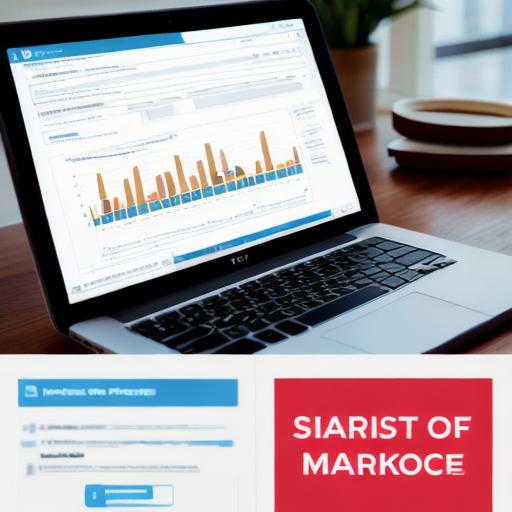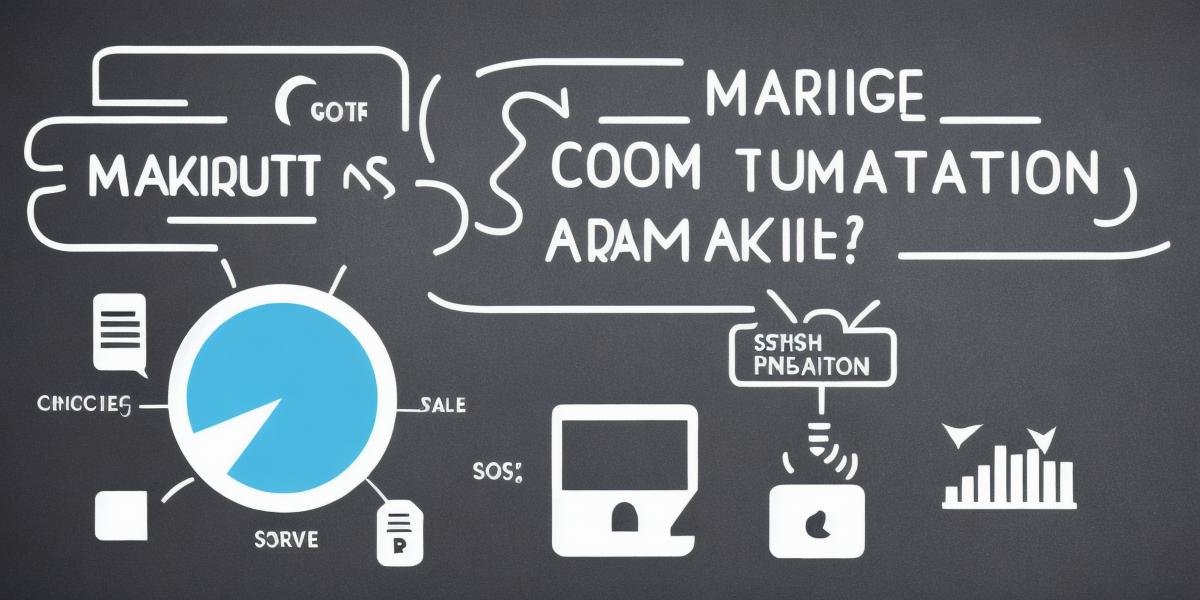Marketing is a crucial aspect of any business, whether it’s big or small. In today’s digital age, having a solid marketing plan can make or break the success of your business. As a small business owner, you may feel overwhelmed by the thought of creating an effective marketing strategy. However, with the right approach and guidance, marketing your business can be a manageable and successful task.
In this article, we will provide you with examples of effective marketing plans for small businesses that you can use as inspiration to create your own. We’ll also share tips on how to optimize your content for search engines (SEO) so that it ranks higher in search engine results pages (SERPs) and attracts more traffic to your website.
The Importance of a Marketing Plan
Before we dive into examples of effective marketing plans, let’s first discuss why having a marketing plan is important for small businesses.
A marketing plan helps you define your target audience, identify your unique selling proposition (USP), and create a roadmap for reaching your business goals. It outlines the strategies and tactics you will use to promote your products or services, and it provides a framework for measuring your success and making adjustments as needed.
Having a marketing plan is also essential if you want to attract more customers to your business. By defining your target audience, you can create content and advertising campaigns that are tailored to their needs and preferences, which increases the likelihood of converting them into paying customers.
Case Study 1: Glossier’s Viral Marketing Strategy
Glossier is a beauty brand that has become a household name in recent years due to its viral marketing strategy. The company was founded by Emily Weiss, who started the brand as a blog and used social media platforms like Instagram to showcase her products.
One of Glossier’s most successful campaigns was its "You Look Good" advertising campaign, which featured real people using the brand’s products. This strategy resonated with consumers because it was relatable and authentic, and it helped create a sense of community around the brand.
Glossier also used influencer marketing to promote its products. The brand partnered with popular beauty bloggers and social media influencers to showcase their products and reach a wider audience. This strategy was effective because it tapped into the trust and credibility of these influencers, which helped increase brand awareness and sales.
Case Study 2: Warby Parker’s Content Marketing Strategy
Warby Parker is an online eyewear retailer that has disrupted the traditional eyewear industry by offering affordable, stylish glasses and sunglasses. The company was founded by Neil Raider, Andrew Hunt, and Aaron Eyler in 2010, and it quickly became one of the fastest-growing companies in the US.
One of Warby Parker’s most successful marketing strategies has been its content marketing efforts. The brand creates high-quality blog posts, videos, and social media content that educates consumers about eyewear and inspires them to make a purchase.
For example, Warby Parker’s blog features articles on topics like how to choose the right glasses for your face shape, how to care for your eyewear, and the latest trends in eyewear fashion. This content not only helps consumers make informed decisions about their purchases but also positions Warby Parker as an authority in the industry.
Warby Parker has also used social media influencers to promote its products. The brand partners with popular influencers like Zoella and Lily Aldridge to showcase its glasses and sunglasses, which helps increase brand awareness and sales.
Case Study 3: Dollar Shave Club’s Viral Video Marketing Strategy
Dollar Shave Club is a subscription-based razor service that has become famous for its viral video marketing campaigns. The company was founded by Michael Dubin in 2012, and it quickly gained traction by creating humorous and engaging videos that showcased the benefits of using Dollar Shave Club’s products.
One of Dollar Shave Club’s most successful videos was its "Our Blades Are F*ing Sharper" campaign, which featured Dubin delivering a comedic monologue about the superiority of Dollar Shave Club’s razors. The video went viral on social media and helped the brand gain widespread attention and popularity.
Dollar Shave Club has also used influencer marketing to promote its products. The brand partners with popular influencers like Mark Cuban and Ashton Kutcher to showcase its products and increase brand awareness.
Effective Marketing Plan Strategies for Small Businesses
Now that we’ve looked at some successful marketing examples let’s explore some effective strategies that small businesses can use to create their own marketing plans.
- Define Your Target Audience
To create an effective marketing plan, you need to know who your target audience is and what their needs and preferences are. Conduct market research to gather information about your target audience, such as their age, gender, income level, interests, and pain points.
Once you have a clear understanding of your target audience, you can create content and advertising campaigns that resonate with them and solve their problems.
- Create a Strong Brand Identity
Your brand identity is the way your business is perceived by your target audience. It includes your logo, tagline, messaging, and visual elements like color schemes and typography.
To create a strong brand identity, you need to define what makes your business unique and why it matters to your target audience. Use this information to guide all of your marketing efforts and ensure that your branding is consistent across all channels.
- Leverage Social Media
Social media is a powerful tool for reaching and engaging with your target audience. Create social media profiles on platforms like Facebook, Instagram, Twitter, and LinkedIn, and use them to share content, promotions, and updates about your business.
Consistency is key when it comes to social media. Post regularly and at the right times to ensure that your content is seen by as many people as possible. Use engaging visuals like images and videos to grab your audience’s attention and encourage them to interact with your content.
- Offer Exceptional Customer Service
Exceptional customer service is a key differentiator for small businesses. Provide top-notch service to your customers, respond promptly to their questions and concerns, and go above and beyond to exceed their expectations.
Word-of-mouth referrals are powerful marketing tools, and satisfied customers are more likely to recommend your business to others. Use customer feedback to improve your products or services and create a positive reputation for your brand.

- Use SEO to Optimize Your Content
Search engine optimization (SEO) is the process of optimizing your content to rank higher in search engine results pages (SERPs). By using relevant keywords, creating high-quality content, and building backlinks from other websites, you can increase your visibility on search engines like Google and Bing.
Optimizing your content for SEO not only helps drive more traffic to your website but also improves the overall user experience. Use clear and concise language, include relevant headings and subheadings, and use images and videos to break up text and make your content more engaging.
Case Study 4: Airbnb’s User-Generated Content Strategy

Airbnb is a peer-to-peer accommodation platform that has become famous for its user-generated content strategy. The brand encourages its users to share photos and reviews of their experiences on the platform, which helps to build trust and credibility with potential customers.
Airbnb’s user-generated content not only helps to promote the brand but also creates a sense of community among its users. By encouraging users to share their experiences, Airbnb fosters a sense of belonging and makes its platform more attractive to potential customers.
Conclusion
Creating an effective marketing plan is essential for small businesses looking to grow and succeed. By defining your target audience, creating a strong brand identity, leveraging social media, offering exceptional customer service, and using SEO to optimize your content, you can create a powerful marketing strategy that drives results.
Use the examples of successful businesses like Dollar Shave Club, Warby Parker, and Airbnb as inspiration for your own marketing efforts, and remember that consistency, creativity, and engagement are key to success.




